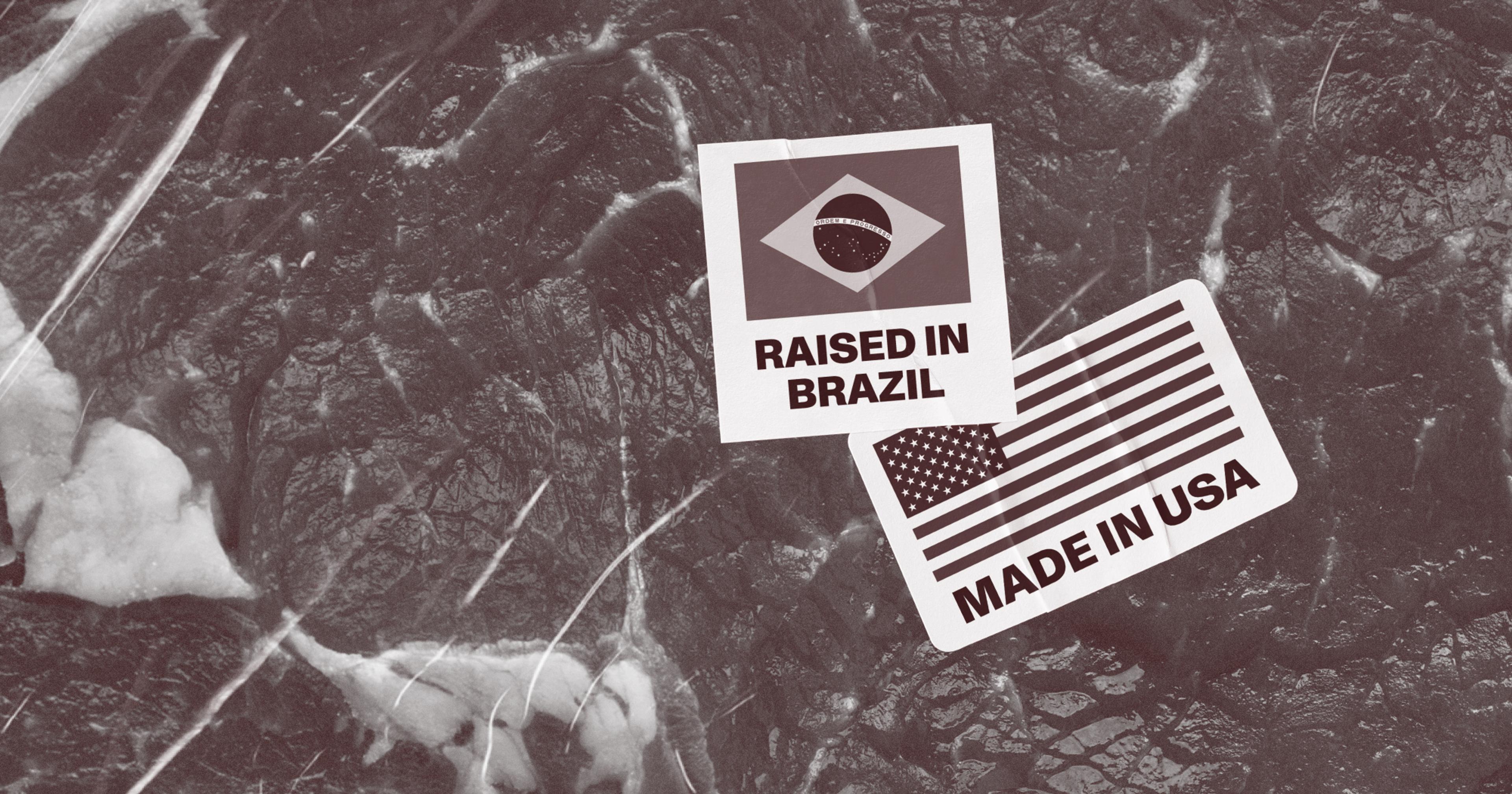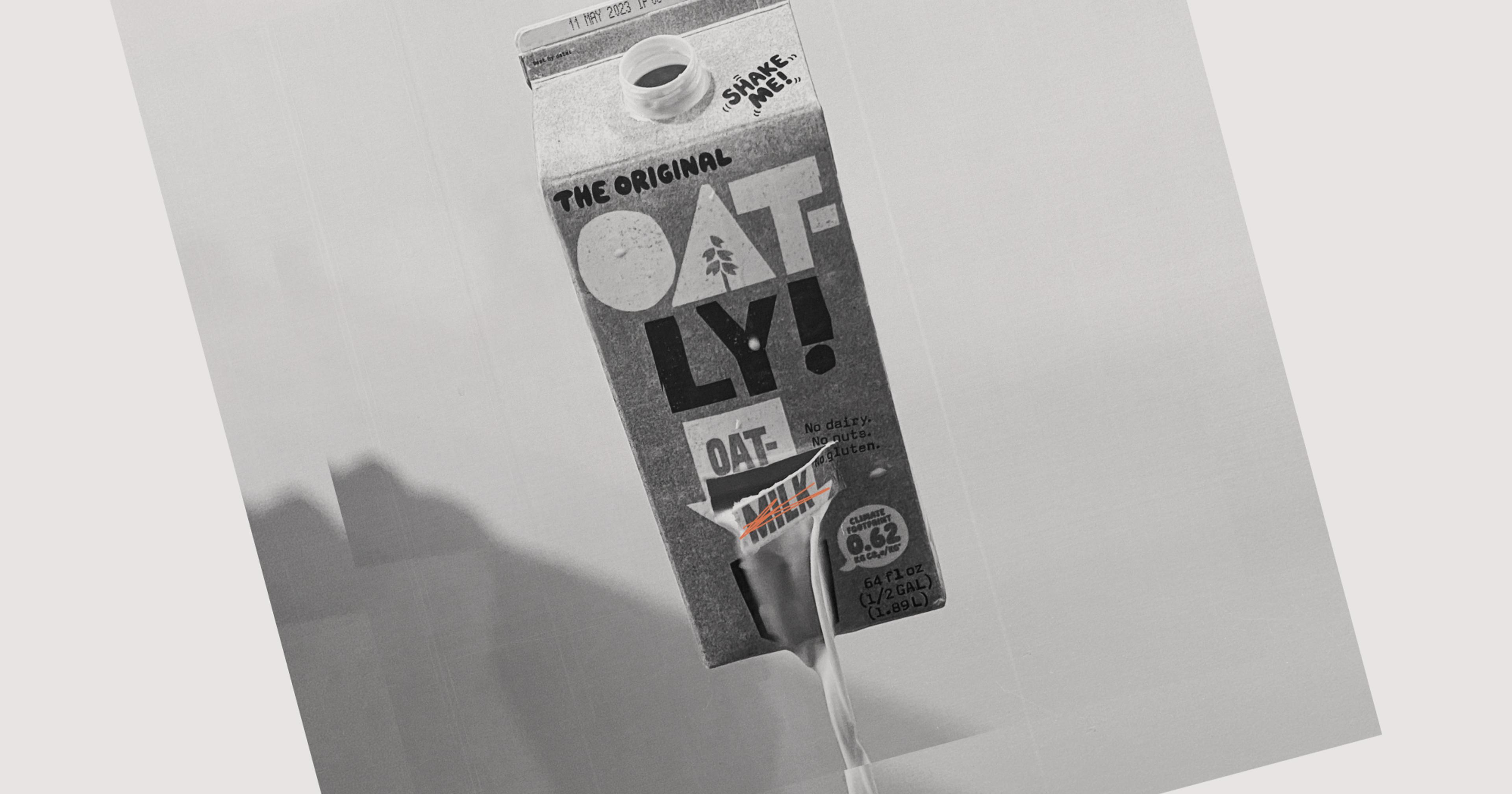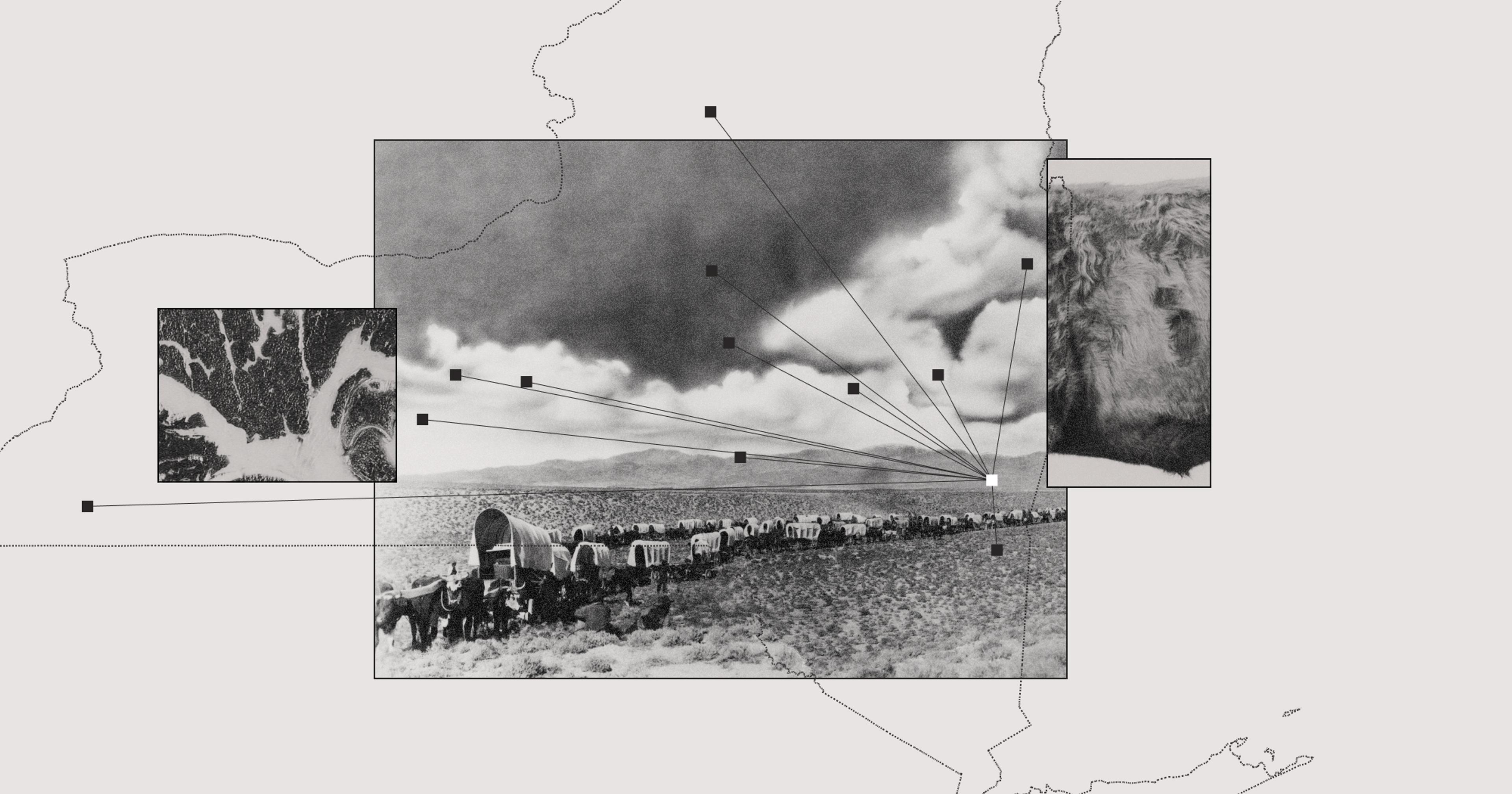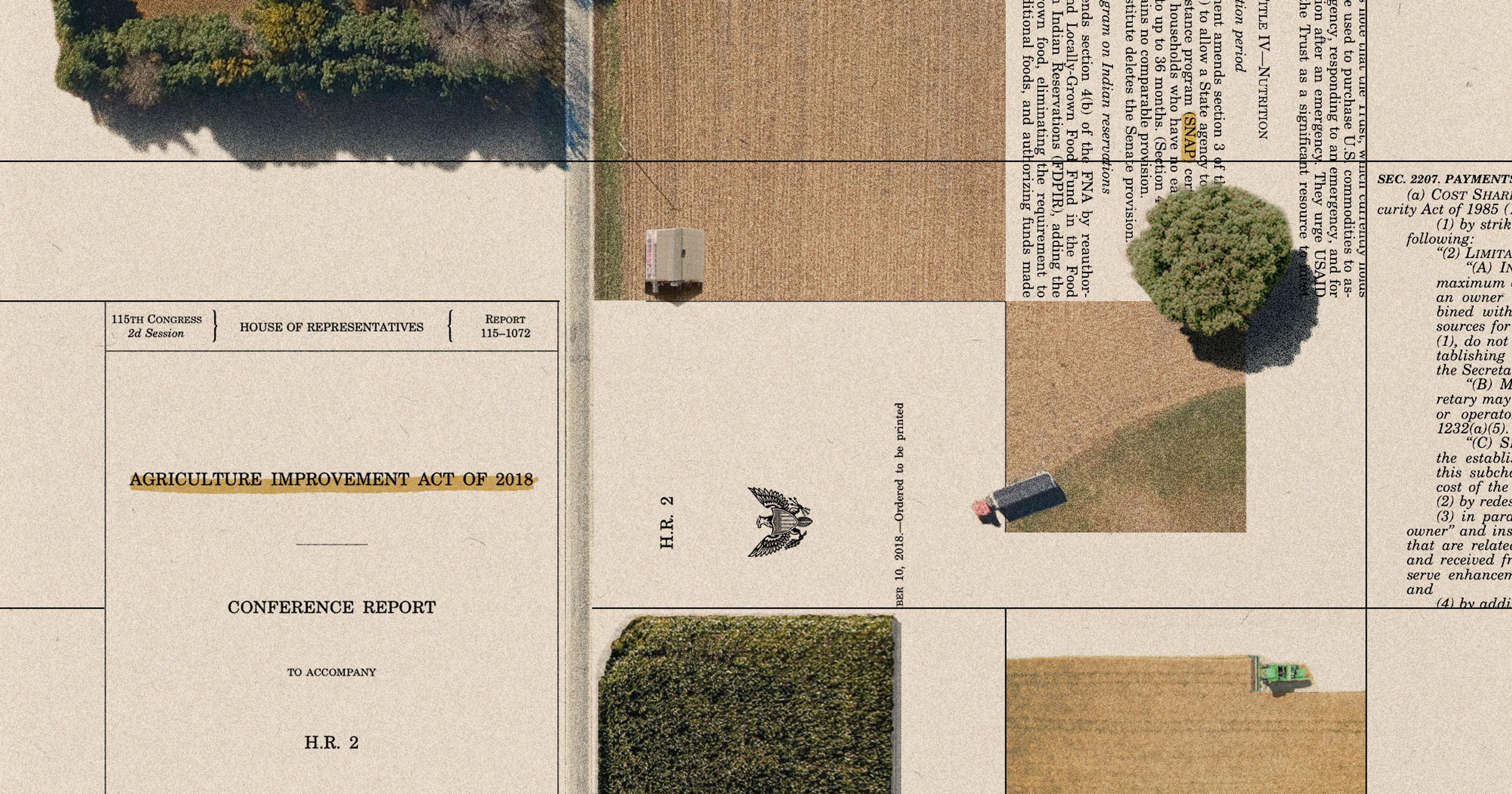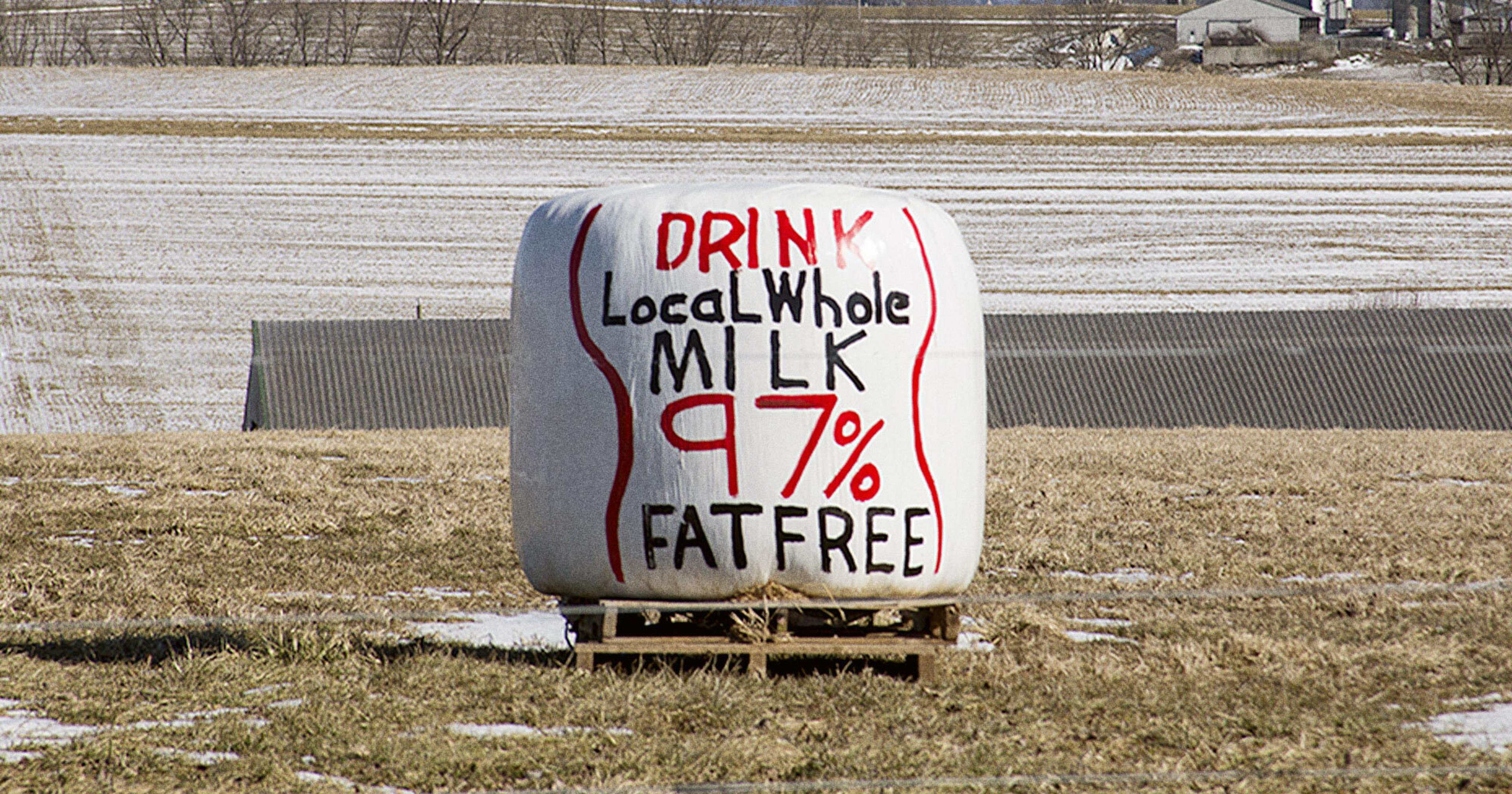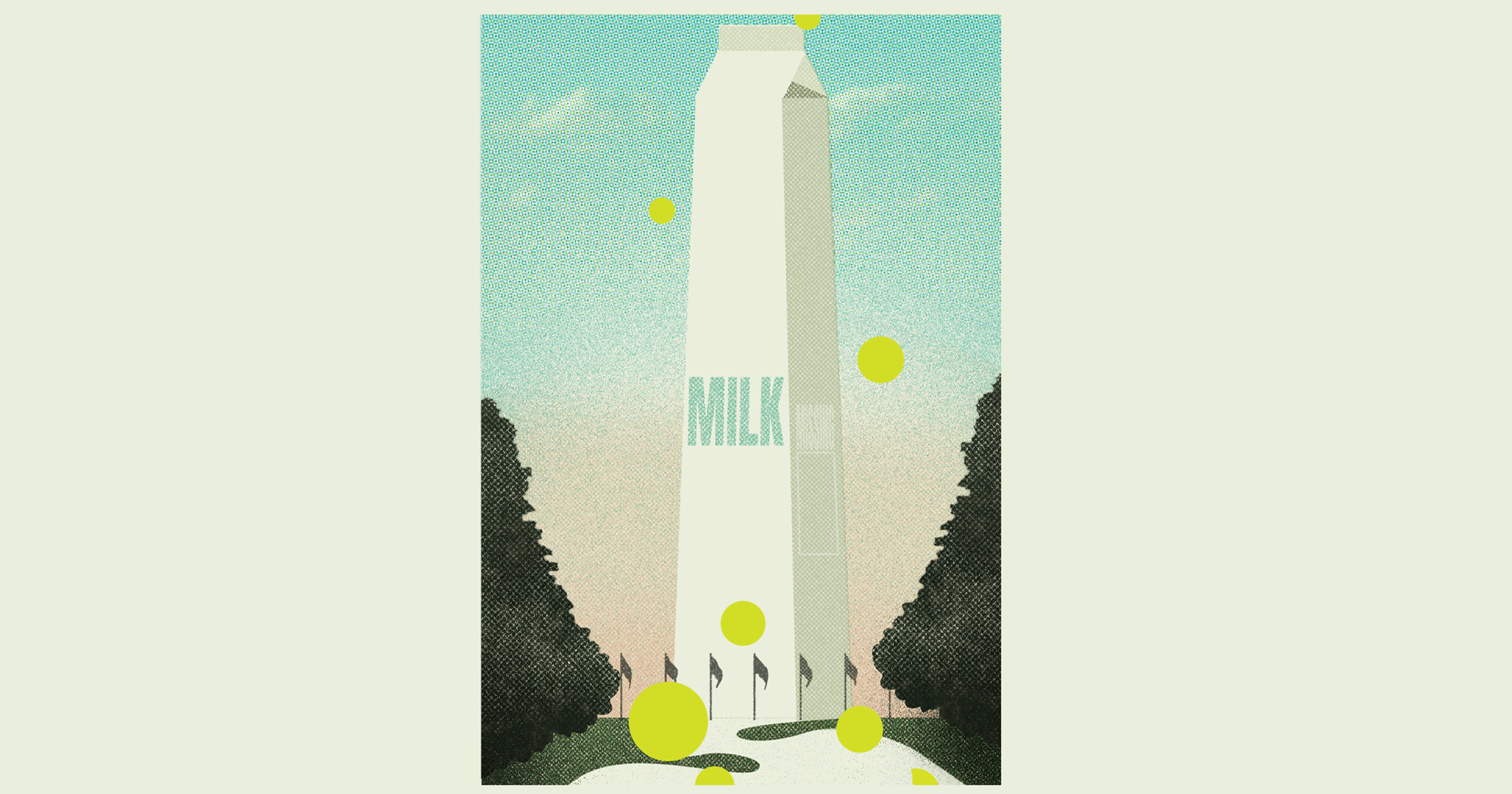Should meat from cattle raised in, say, Brazil, be allowed to carry a sticker that says “Made in USA?” The USDA wants your thoughts.
Any close follower of food labeling laws knows that there are all sorts of deceptive landmines in our grocery aisles: “Natural” foods aren’t necessarily natural; “free-range” chickens might not go outside; and food made by “independent family farmers” may actually come from big, faceless agribusiness.
So while it may seem like a fair assumption that a product of the USA would actually be produced here, the truth is much murkier. “Turns out most meat managers don’t even know,” Montana rancher Gilles Stockton said. “They assume that if a product says ‘Product of USA’ then it actually came from here.”
Stockton is a leader in the Northern Plains Resource Council, a nonprofit organization that supports grasslands conservation and family agriculture. He said some of his fellow council members have been visiting local supermarkets to get a sense of how meat is being labeled for retail sale, and how much the public knows about the rules.
The U.S. Department of Agriculture (USDA) is attempting to tamp down this confusion by tightening the rules surrounding voluntary labels that state “Made in USA” or “Product of USA” on meat and eggs. As it stands, that label can be stuck on steak from a steer that spent its entire life in another country, as long as the beef was processed or even just packaged here. Origins are even more obscure when it comes to hamburger or other ground products, as producers can easily mix foreign- and American-sourced meat without proper labeling.
“American consumers expect that when they buy a meat product at the grocery store, the claims they see on the label mean what they say,” said USDA Secretary Tom Vilsack in a recent press release.
The USDA conducted research last year that showed consumers are vastly uninformed about the loopholes in these types of origin labels. In response, the agency has proposed they can only be affixed to meat and eggs “when they are derived from animals born, raised, slaughtered, and processed in the United States.”

As it stands, meat sold by the “Big 4” processing companies — Tyson Foods, JBS, Cargill, and Marfrig — is sourced from many links in a global supply chain. Brazilian-based JBS, for instance, is the largest meat producer in the world. Though its U.S. headquarters is in Greeley, Colorado, a significant amount of their globally sourced meat only ends up in the U.S. for final production and sale — what some have called “cattle laundering.”
“People should be able to understand, ‘Oh that steak came from Brazil and I don’t like the taste of it’ or maybe they do like the taste and that’s what they want to buy next time,” said Bruce Jackson, an Arkansas rancher who runs more than 500 head of cattle with his son Thomas. “Either way, people should know what they’re getting.”
Montana’s Stockton would take that sentiment a step farther, arguing that “USA is a brand” with positive name recognition that is being exploited by foreign competitors. “Not only are we competing for sales with imported meat,” he said, “but then they get to sell their beef with a sticker that says it came from here? That’s just fraud, plain and simple.”
It should be noted that USDA’s current rulemaking pertains to voluntary labels, and is not related to mandatory Country of Origin Labeling (COOL) laws that were enacted in 2009, then repealed six years later. Under these laws, a cut of meat would be required to bear a label reading, for instance, “born in Canada, raised and slaughtered in the United States.” They were repealed in 2016 after Canada and Mexico claimed they were unfair and threatened to enact retaliatory tariffs.
Bill Bullard is CEO of R-CALF USA, the lobbying and trade association for independent cattle producers. While he supports USDA’s rule changes as a step in the right direction, his organization is focused on reviving COOL. “The mandatory country of origin labeling law required all imported beef to retain its foreign label through retail sale, meaning all the way to the consumer,” said Bullard. “Whereas the Product of USA label rulemaking doesn’t require anyone to label anything in the marketplace. It’s a voluntary label.”
“They get to sell their beef with a sticker that says it came from here? That’s just fraud, plain and simple.”
Bullard also argued that without mandatory labeling laws on country of origin, the “USDA Inspection” sticker — required on all meat products sold here — creates significant consumer confusion. R-CALF is focused on lobbying for the American Beef Labeling Act, a bipartisan bill that would restore COOL labeling laws.
Glynn Tonsor, a professor of agricultural economics at Kansas State University, helped draft a 2015 economic analysis of COOL’s impacts for Congress. He said the pushback wasn’t just from foreign countries but also from domestic meat producers who claimed the labels were onerous and expensive. Tonsor also cited research that there was little evidence COOL provided economic benefits to U.S. meat producers (though he notes not everyone agrees with this assessment).
“You can find ranchers that are both for and against COOL then, and I’m sure you can find ranchers that are both for and against the kind of proposed adjustments to the voluntary [Made in USA] label,” he said.
While Tonsor’s research showed that there were no tangible economic benefits to American meat producers from country-of-origin labeling, plenty of ranchers claim otherwise. Take Alan Shammel, another rancher who works with the Northern Plains Resource Council. Shammel told The Daily Yonder his annual profits increased by $210,000 when COOL was instated.
“It was a loss to the entire community when our ranch lost that extra money [after COOL’s repeal]. And when you multiply that by all the other ranchers in the area, it’s just tremendous,” he said.
The USDA public comment period is open until May 12.

